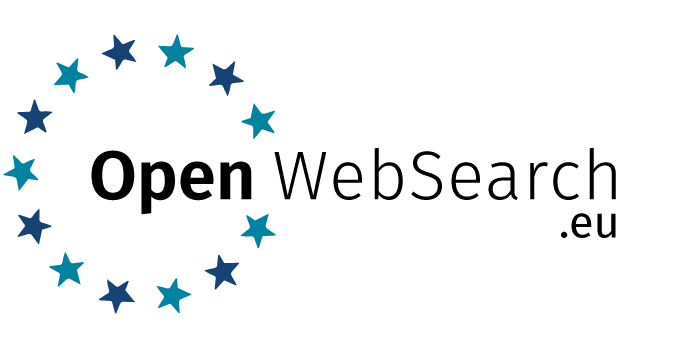“OpenWebSearch.EU is an open project where others can contribute” – Interview with Megi Sharikadze and Michael Granitzer about the third-party calls of openwebsearch.eu
A trustworthy search that protects the personal data of its users and integrates European laws: That is the goal of OpenWebSearch.EU. The plan also includes bringing external research groups and companies on board. To this end, a total of three so-called third-party calls are planned. The first public call ends on 28 April.
What is the strategy behind openwebsearch.eu’s third-party calls? Who applies? And how will the entries be evaluated? Susanne Vieser interviewed the two project coordinators, Prof. Michael Granitzer from the University of Passau and Dr. Megi Sharikadze from the LRZ.
Read the full interview on the website of LRZ
“Basis for a thousand search engines – The EU wants to build a public web index by 2025” | c’t
“Does it always have to be Google or Bing? With the OpenWebSearch project, the EU wants to protect its sovereignty on the Internet. The goal is a freely accessible web directory that feeds diverse search engines and language models and should trigger a boom in new web services.”
In the German IT and tech magazine c’t, journalist Arne Grävemeyer takes a detailed look at the EU project openwebsearch.eu, with which 13 European organisations are pushing the development of an open web index. Michael Granitzer (University of Passau, OSF and project lead of openwebsearch.eu), Stefan Voigt (Open Search Foundation, DLR), Christian Gütl (Graz University of Technology) and Phil Höfer (SuMa e.V./MetaGer) have their say. The article is in German, here are some quotes:
“But what could you do with a large web index if it were freely available to the public? One could build alternative search engines or specialised search services according to selected topics. Users would have free choice and could better protect their private user profiles. Linguists could use the data pool of a large web index to follow how our language is developing, and sociologists could observe how we interact with each other in the social media. Web services could use it to look for clues to incipient pandemics or other catastrophic events and thus build an early warning system.”
“We are not a European Google,” says Michael Granitzer, Chair of Data Science at the University of Passau, who is coordinating the OpenWebSearch project. He says the project is not about building a large search engine, but much more fundamentally about establishing an infrastructure that search engines and other services can later work with. Google’s size is certainly out of reach at the beginning. “It will be more like Wikipedia, which started with a small core compared to large publishers and then grew continuously.”
“Even at the start of the project, and thus before the hype around ChatGPT, the partners considered the Open Web Index, with its focus on European content and languages, as a data pool for specialised language models. New search engines could also immediately use these models as an interface for search queries. “Users are usually not looking for links, but for answers to their questions or even suggested solutions,” says Gütl. That speaks for the use of chatbots, he says.”
“In terms of Europe’s digital sovereignty, the Open Web Index can certainly be seen as a critical infrastructure. The project partners hope that it will create transparent structures on the web. The envisaged European web index promises more plurality and hopefully benefits above all those who simply provide the best and most reliable information on their websites.”
Online version of the (german) article (paywall) at heise.de
Links to Open Web Search, compiled by c’t: ct.de/y6sw


Get in touch with the OpenWebSearch.eu community
Funded by the
European Union
The project OpenWebSearch.EU has received funding from the European Union's Horizon research and innovation programme under grant agreement No 101070014.

